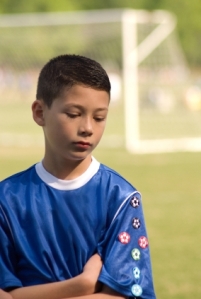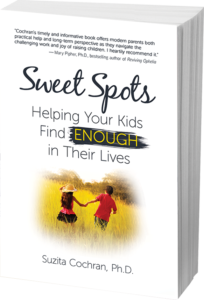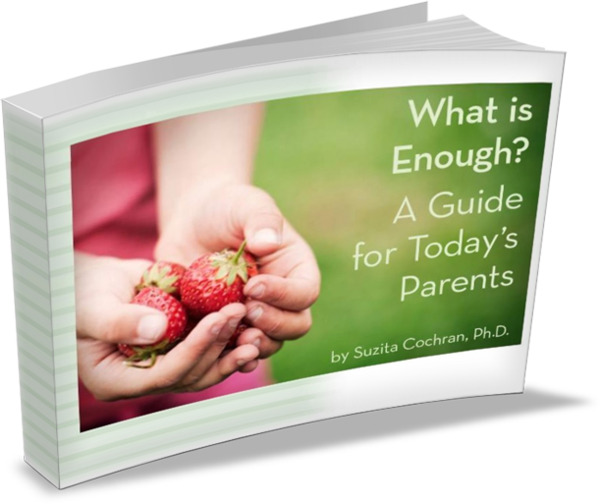 All three of our kids play soccer on local teams. Early on Todd and I chose soccer as a sport to start with in our family mostly because it requires you to run hard. With three active kids living in a small home, energy expended in an activity is a vital consideration.
All three of our kids play soccer on local teams. Early on Todd and I chose soccer as a sport to start with in our family mostly because it requires you to run hard. With three active kids living in a small home, energy expended in an activity is a vital consideration.
Now that the kids are older, we also appreciate the social skills they practice while playing a team sport. Soccer has additionally been surprisingly helpful for meeting other kids during our travels in Central America. So, for now, soccer continues to be the team sport we put the most time and energy into as a family.
The older the kids get, though, the more complicated (and expensive) soccer has become, even though we’ve always opted for recreational rather than competitive teams. Last season Annie’s soccer team consisted of mostly boys. While she’s used to playing fairly rough-and-tumble soccer with her brothers, the boys on this team didn’t regularly pass to girls. This season we are trying an all-girls team for her.
Daniel’s soccer team also wasn’t ideal for him last season. After much thought, we placed Daniel on his older brother’s soccer team. This change will be more efficient for us. No more driving (or biking) to three separate practices and games. And Daniel is a strong player and should be able to keep up fairly well. But Todd and I will be watching closely to see how having both brothers on one team unfolds.
I observed part of the boys’ first practice, from a distance (so as not to embarrass my pre-adolescents by being too close). Daniel appeared to be keeping up, and Stephen looked like he was serving as the big brother we hoped he would be.
When I checked-in with Daniel about the practice that evening, I expected his response to match what I’d witnessed. Instead I heard, “It was hard Mama. The coach had us do this kind of dribbling that I’d never done before. All the other boys knew how to do it, but I didn’t.” As Daniel talked he seemed to feel more and more defeated. I felt a bit hopeless just listening to him.
But before spiraling down too low, I was able to try some of the methods Martin Seligman (often called the father of Positive Psychology) recommends in his book, The Optimistic Child: A Proven Program to Safeguard Children Against Depression and Build Lifelong Resilience.
I told Daniel that he was right, he was learning these dribbling skills for the first time. Many things are hard the first time you attempt them.
Then I reminded him that he often challenges himself to learn new things, like a while back when he decided he wanted to whistle. He experimented with a myriad of mouth positions all day for two days straight, and by the end, he was a whistler. He smiled remembering this.
Next I suggested, “How about Daddy or I spend some time tomorrow afternoon practicing these new skills with you? Then I bet they’ll start to come easier.” Daniel readily agreed.
I’m not sure he would have remembered this practice on his own, but I’d written myself a note so we wouldn’t forget. The next afternoon Todd practiced the new type of dribbling with Daniel on our backyard’s sparse wintertime grass, with our neighbors’ chickens looking on interestedly. The next day we practiced again, this time encased in thick winter coats, as the temperature had dropped significantly.
Due to these special practice times, Daniel is continually improving at this new form of dribbling, and also becoming more self-confident about being the new kid on the team.
In The Optimistic Child, Seligman offers numerous parenting techniques under the general theme of teaching kids optimism. One skill that supports an optimistic world view is persistence. This interchange with Daniel reminded me of what Seligman writes on having persistence in the face of life’s obstacles.
“Any complicated task your child might undertake consists of several steps, each of which is more or less easy to fail at…Every subfailure, as well as every big failure, produces bad feeling – some admixture of anxiety, sadness, and anger…Your child has one of only two tactics available when he feels bad. He can stay in the situation and act, trying to terminate the emotion by changing the situation. Or he can give up and leave the situation. This tactic also terminates the emotion by removing the situation altogether. The first tactic I call mastery, and the second I call learned helplessness.”
Seligman’s words reminded me of what my stepfather used to say to me as a kid, as a part of his Failure Payment Plan (see post). “Failure is an important part of life.” When my stepdad paid me for ambitious failures, he was helping me become more comfortable around failure.
Seligman writes that those who can tolerate failure can make their way to mastery. He would have us teach our kids persistence in order to help them endure the numerous failures they will experience when learning any big task. Both persistence and failure tolerance are key aspects of an optimistic personality.
Seligman notes that Paul Ehrlich concocted 605 drug mixtures in his attempt to cure syphilis, before he reached drug 606 which finally worked. And summarizes,
“Children need to fail. They need to feel sad, anxious, and angry. When we impulsively protect our children from failure, we deprive them of learning the 606 skills. When we soften the blows [of failure] and distract them with congratulatory ebullience, we make it harder for them to achieve mastery…By blunting warranted sadness and anxiety [we] create children at high risk for unwarranted depression.”
Whew! That paragraph caught my attention. Like most parents I find it incredibly challenging to watch my kids flounder, struggle, fall hard, become intensely frustrated, and/or fail. But when Seligman links inability to handle life’s failures with depression (which the data in his book clearly do), I find myself much more motivated to generate creative ways, like my stepfather’s, to help my kids accept, and even learn from, their failures.
I’d love to hear other people’s ideas or experiences for helping kids become more comfortable with failure. Leave a comment below!
_____
An Additional Resource:
A workbook for kids ages 6-12 titled, What to Do When You Grumble Too Much: A Kid’s Guide to Overcoming Negativity, by Dawn Huebner, Ph.D.
Daniel and I have used this together because we both have a small tendency to grumble too much. I found it quite useful. It seems most appropriate for ages 8-11.

 Sweet Spots: Helping Your Kids Find ENOUGH in Their Lives.
Sweet Spots: Helping Your Kids Find ENOUGH in Their Lives.


This reminds me of Tiger Mom and the piano. Persistence and don’t give up. Kids are a LOT tougher than we wish they were 😉
I like the way you frame problem solving for your kids–it allows them to practice persisting without leaving them to flounder needlessly. Thanks for another great post.
I think it was Happiest Toddler on the Block that pointed out our double standards when it comes to our kids’ emotions: we join in on the positive ones, sometimes even amplifying them (“Yay! You made it to the end! Wow, that’s awesome!”), but we negate the negative ones (“Enough crying already.” “It’s not so bad.” “Get over it.” “Stop screaming.” “Don’t worry, we can try again later.”) So step 1 is just letting them actually feel bummed and frustrated and distraught.
Step 2 is certainly to normalize (and celebrate) failure. Showing how common it is, sharing your own stories, not adding shame to the experience. This helps reframe it from a purely negative experience for losers to a complex (but normal) experience for everyone.
Step 3 is then giving them skills for persevering, learning from failures, breaking hard problems down to small steps, learning how to practice, and focusing on the effort, not the inherent skill (as Carol Dweck writes about).
I like your point about how we can negate negative emotions, even perhaps thinking we are being supportive in doing this. I’ll admit I’m better at Steps 1 and 2 that you mentioned than Step 3. But I’m working on it!
Helpful! Of course the biggest trick is first being able to recognize failure as opportunity, which most of us don’t do in our own lives either. Setting an example seems to be important as well – and rewarding not just our kids but also ourselves for hard work rather than success. I know I struggle with this regularly!
I like that you took some responsibility for remembering the extra practice. I think I never learned as a child that if I would only *practice* I could become better than I was when I began. I perceived a lot of skills as innate, rather than learned.
My parents never took the time to make me practice softball, because they assumed it would be better to let me make my own decision that if I wanted to be better, I needed to practice. And I think that there are a lot of stories of successful people in our society who figured that out on their own and accomplished great things through persistence – but I think there are probably plenty of kids out there who were more like me, and needed to *learn* the benefits of practice.
I am a child and adolescent therapist and I find that usually when parents tell their children to toughen up or not to be sad, it’s because they don’t like feeling sad. So in order to appease their own feelings, they try to force their children not to express their feelings either.
I always tell parents that disciplining their children is teaching them, not punishing them. It’s a way to let them know they failed at something but that they can get up again (after time out) and try it again! But often times parents feel bad about disciplining because of the reaction of the child. Your explanation points out the importance for parents to go through the pain like their kids do.
I always tell parents that if they feel bad, they are doing something right!
Great points! Thanks so much for leaving them. I especially like your comment that often when parents feel bad when disciplining they’re doing something right.